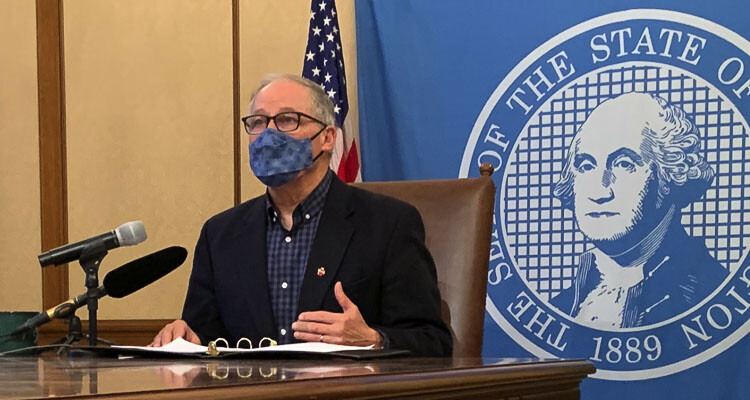
Todd Myers of the Washington Policy Center shares his perception that there is growing hostility to transparency and the culture of open scientific inquiry and public service has eroded
Todd Myers
Washington Policy Center
A study about the transparency of scientific data recently caught my eye. The study asked for research from the authors of 1,792 studies from open-access journals that promised to provide data upon request. Of those, only 122 (6.8%) provided the data.

There may be a number of reasons for this extremely low number, but my perception is that there is growing hostility to transparency and that the culture of open scientific inquiry and public service has eroded. Scientists refuse to release information to those they think might rebut their claims or undermine a preferred political position. Government agencies and politicians evade questions or simply refuse to answer them.
This culture of government secrecy isn’t unique to Washington state, but it does seem worse than in other places. When I call agency heads or staff in other states, like Idaho and Montana, I frequently get return calls the same day. Sometimes the person picks up the phone! That isn’t the case in Washington state. When I call or email someone I don’t know (or without someone providing an introduction), the percentage of time I get a response is extremely low.
That is anecdotal, but there are many tangible examples of Washington’s culture of secrecy.
- Results Washington, which was specifically created to provide transparent accountability, has stopped reporting any data and doesn’t even have any goals or targets. Governor Inslee said, “holding ourselves accountable for results to the citizens of Washington isn’t politically expedient, but it clearly is the right thing to do.” Now politics have clearly trumped accountability and the results have disappeared.
- Similarly, for the first couple of years of the COVID pandemic, the governor outlined the metrics and targets he was using to open counties and make decisions. No more. The governor doesn’t say what metrics he is using to make decisions or what thresholds are for policy changes. When asked recently what metric is needed to lift the vaccine mandate on state workers, he said, “It’s not so much a metric, it’s the nature of the disease.”
- To justify his climate policies and expenditures this year, the governor claimed Washington state will be 6 million metric tons of CO2 short of its target in 2030. I asked the governor’s climate advisors if they had updated that estimate since the legislative session. No answer.
- Indeed, the governor’s press secretary has locked his Twitter account, despite tweeting about public policy issues.
To be sure, some front-line staff at various agencies are willing to chat with me and are often candid about environmental issues and the good and bad of climate policy. I also have good contacts and colleagues at several agencies and they are fun to chat with and provide good information. But my experience is that it is easier to talk with key policymakers and even staff in other states than in Washington.
Perhaps policymakers don’t respond because they worry that I will be critical of their policies. That would confirm that policymakers don’t see themselves as public servants but political combatants.
While accountability is hard, it is good government. The quote from Governor Inslee above shows he realizes that is true, even if he doesn’t like to live up to it. Listening to critiques of policy is critical to the democratic process and being effective.
Indeed, where the governor has chosen good policy, we have been supportive. We testified in favor of Governor Inslee’s first climate policy, which created metrics for prioritizing efforts to reduce CO2 emissions. When he abandoned that approach less than a year later, we were critical. Not surprisingly, Washington has been extremely poor at reducing CO2 emissions, missing its targets and seeing emissions increase even as the governor claimed he was having success.
At the most basic level, elected officials and staff at state agencies are supposed to be public servants. When I worked at the Washington State Department of Natural Resources, we regularly met with members of the environmental community, even as they ran political campaigns attacking my boss. Ironically, one of the people we met with regularly (and was extremely aggressive in that political campaign) was Becky Kelly, who is now Governor Inslee’s climate advisor.
Instead of discussion, what passes for transparency are public disclosure requests and public comment periods. Those things are useful, but they often fall short of transparency. They provide little insight into how Governor Inslee is currently making decisions on COVID policy. Many disclosure documents have large redactions.
Ultimately, the best way to counteract this culture of secrecy is to empower citizens with more control over information and decision-making. As long as politicians are responsible for big policy decisions, they will take steps to limit opposition, including restricting access to information.
Todd Myers is the director of the Center for the Environment at the Washington Policy Center.




